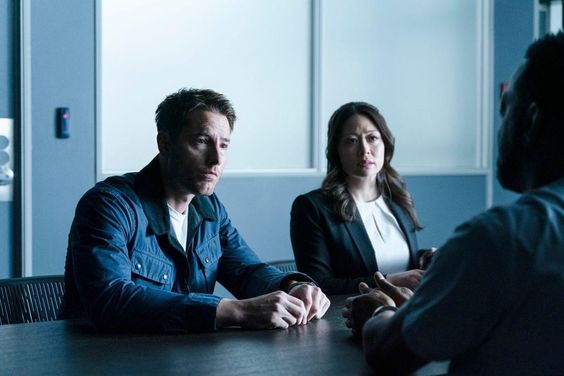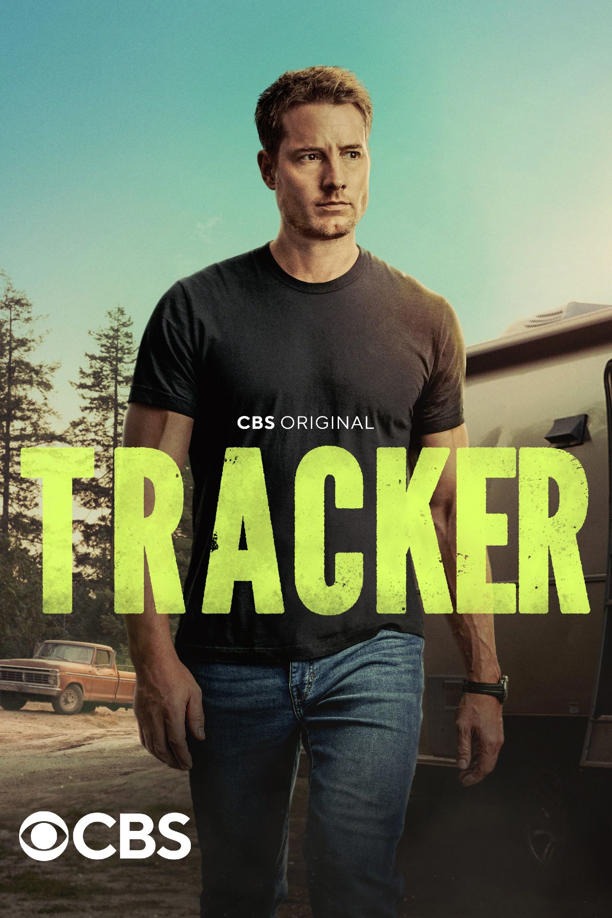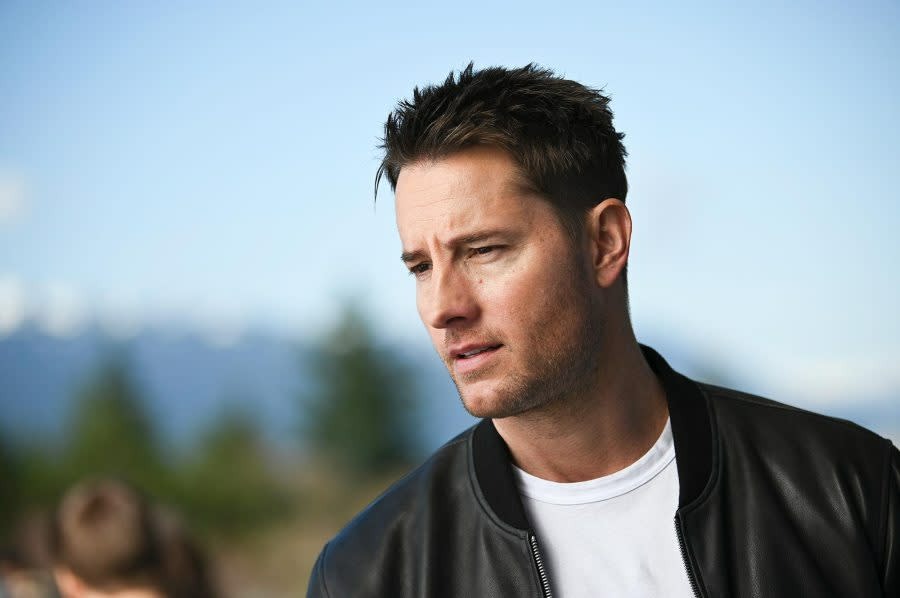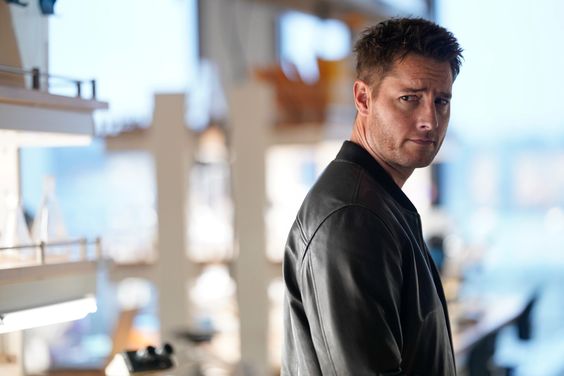
5 Ways Tracker Is A Better Show Than Reacher
Tracker season 1 attracts loyal viewers and high ratings due to its strong pacing and relatable protagonist, Colter Shaw.
Colter Shaw in Tracker is portrayed as a more realistic and relatable character compared to the superhuman Jack Reacher.
Unlike Reacher, Colter Shaw in Tracker values teamwork and negotiation over gratuitous violence, making the show more believable.
Those who have watched both Tracker and Reacher have likely enjoyed their similarities, but Tracker utilizes a few of those elements more effectively. Tracker season 1 blew up in CBS ratings and became the network’s biggest new hit, instantly gaining a loyal audience. The story follows Colter Shaw (Justin Hartley), a self-proclaimed “rewardist” who uses his expert tracking and survival skills to find missing people. The show has been a hit thanks to its strong pacing and sympathetic protagonist in Colter, as well as Tracker’s great cast of characters.
Tracker has been earning comparisons to Reacher, and with good reason. Both feature hyper-competent, lone wolf protagonists with complicated backstories. That’s arguably where the comparisons end, however. Beneath the surface, the DNA of Tracker and Reacher are very different, and in many ways, Tracker is arguably the better show.
Tracker’s Colter Shaw Is A More Realistic Character Than Reacher
Reacher Comes Across As A Bit Too Superhuman
Jack Reacher is undoubtedly a competent character, but his competence sometimes enters the realm of implausible. There’s never a moment that Reacher isn’t ultimately three steps ahead of everyone else, guessing outcomes and predicting plots with minimal information. Plot threads often come together in very thin ways, with Reacher and his temporary cohorts stringing together seemingly unrelated facts to come to a conclusion and that’s that. In science and investigative work, that would be an enormous blunder.
Conversely, while Colter is also extremely skilled and highly trained in several areas, he’s more of a human being rather than superhuman. He knows his limits, which is why he always has a team around him, requesting help for all the things he can’t handle alone. There are times he admits he doesn’t know or can’t do something. “That’s impossible to figure, even for me” he tells a partner in episode 6, for example, when they’re looking for a specific set of tire tracks in a mess of tracks in the mud. Colter’s ability to admit his areas of weakness makes him more human, and grants each episode higher stakes – even though it’s certain Colter will find his person in the end, it doesn’t come without some mistakes along the way.
Colter’s ability to admit his areas of weakness makes him more human, and grants each episode higher stakes even though it’s certain Colter will find his person in the end, it doesn’t come without some mistakes along the way.
Tracker’s Colter Shaw Isn’t A Lone Wolf Like Reacher
Colter Realizes He Needs A Team Around Him
Despite Tracker liking to call Colter Shaw a lone wolf, he’s not actually much of one. Like Reacher, Colter never stays in one place for too long, always hitting the road after another case is closed. Despite that, Colter stays in touch with those he loves, keeping in close contact with his team. He’s constantly leaning on them to help him out, knowing he can’t possibly do the job alone. His handlers, Teddi and Velma Bruin (Robin Weigert and Abby McEnany) are his researchers and logistics team; Colter relies on them not just to find him the next job, but also to set him up with any equipment or support he needs
Bobby Exley (Eric Graise) is a former client turned Colter’s hacker and tech guy. Colter’s jobs often require him to pull information that isn’t available to the public, often in ways that skirt the law. He’d be lost without Bobby and he knows it, finally admitting it toward the end of Tracker season 1. Lastly, Reenie Greene (Fiona Rene) is Colter’s lawyer and potential love interest. Without her keen legal mind, he wouldn’t be able to get out of legal scrapes or help his clients, who often need to navigate the complex justice system.
Already, Colter’s relationships with these characters, especially Bobby and Reenie, have deepened considerably. Along with his friends and colleagues, his sister, Dory (Melissa Roxburgh), and brother, Russell (Jensen Ackles) each teamed up with Colter in a memorable episode, and his mother, Mary Dove Shaw (Wendy Crewson) for two episodes. Part of the anticipation of season 2 will be seeing how these relationships deepen and evolve. While Reacher’s new cast of supporting characters for each season keeps things fresh, it also doesn’t give the audience the ability to really get to know anyone or follow a long-term arc, aside from Neagley (Maria Sten). That means it’s Jack Reacher doing all the heavy character lifting, which is a problem for another reason.
Tracker’s Colter Shaw Is More Open & Likeable Than Reacher
People Like Colter In A Way They Don’t Like Reacher
Reacher is a hard character to hang a show on – frankly, he’s downright unlikeable at times, coming across with abrasive aggression from the jump. Reacher’s extreme self-confidence and lack of social skills often come across as arrogance and dismissiveness. It often rubs people the wrong way, and understandably so. Reacher’s first instinct is to be antagonistic toward experts and authorities, even those who initially might understand a situation better than he does. It makes it harder to root for him throughout the series.
Reacher’s first instinct is to be antagonistic toward experts and authorities, even those who initially might understand a situation better than he does. It makes it harder to root for him throughout the series.
For his part, Colter Shaw is a loner and ultra-self-sufficient like Reacher. Unlike Reacher, however, Colter is excellent at reading people and disarming them with his charm. He’s still somewhat closed off thanks to his past, but he’s far more approachable and open than Jack Reacher. It makes people really want good things for him and to work with him, even when he’s abrupt or tries to solo a mission. Whereas Reacher is completely fine being alone, Colter Shaw gives the air of someone who knows he can’t be alone forever and is open to letting people in, albeit slowly. Like the people he works with, the audience also roots for him for this reason.
Tracker Doesn’t Rely On Gratuitous Violence Like Reacher
Colter Shaw Relies On Hostage Negotiation & Crisis Resolution Tactics
Along with his team, Colter Shaw also handles tricky situations much differently than Reacher. Reacher’s answer to any problem is extreme violence first, last, and always. His impulse for over-the-top violence is almost pathological, to the point that several characters have commented on it in Reacher, especially season 1. In reality, a person wouldn’t be able to get away with the violent assault to indiscriminate murder like Reacher does, not without landing in a prison cell. That Reacher evades any accountability for his actions only buffers his unrealistic, quasi-superhuman persona.
While Colter can certainly hold his own in a fight or a shootout – and does many times throughout Tracker season 1 – he prefers to use his smarts over his fists to navigate a difficult situation. Colter has often disarmed a potential powder keg of a situation, whether it’s talking someone out of a fight, alleviating a hostage situation, or coaxing a frightened client to come with him, by using tactics that are very similar to a hostage negotiator. He has a knack for remaining calm and allowing his calm to settle other characters before establishing a rapport with them. It may not be the beatdown that Reacher doles out, but it’s even more impressive considering it’s the arguably harder approach to conflict resolution.
Tracker’s Plot Twists Are More Believable (And Less Telegraphed) Than Reacher
Reacher Suffers From Putting The Plot Over Character Upon Occasion
Granted, it’s hard to compare Reacher and Tracker in a head-to-head comparison regarding plot twists as they have different formats. Reacher tackles one overarching mystery per season, while Tracker is a case-of-the-week style show. As such, while the stories on Tracker are diverse and interesting, they’re still the formula of a weekly procedural, meaning the storylines don’t extend themselves or get more complicated than can be solved in an hour. The twists may not always be shocking, but they make sense and Tracker shows its work, so to speak.
Conversely, Reacher’s plot twists are often fairly sudden, with Reacher making a big leap of logic to arrive at the answer, often relying heavily on plot armor along the way. Strangely, though, there are times when Reacher’s savviness and paranoia uncharacteristically fail him for the sake of moving the plot forward, leading to character inconsistencies. For example, it was really out of character that he not only took the word of Oscar Finlay (Malcon Goodwin), a man he just met, at face value when he vouched for his friend, Det. Picard (March Roach), and never suspected Picard’s duplicity. While it occasionally is necessary to make a season-long plot work, Reacher has several such instances that take one out of the story. Though both shows have a lot of similarities, overall, Tracker is the more satisfying watch.
Tracker season 1 is available on CBS.com and Prime Video; Reacher seasons 1-2 are available on Prime Video.
